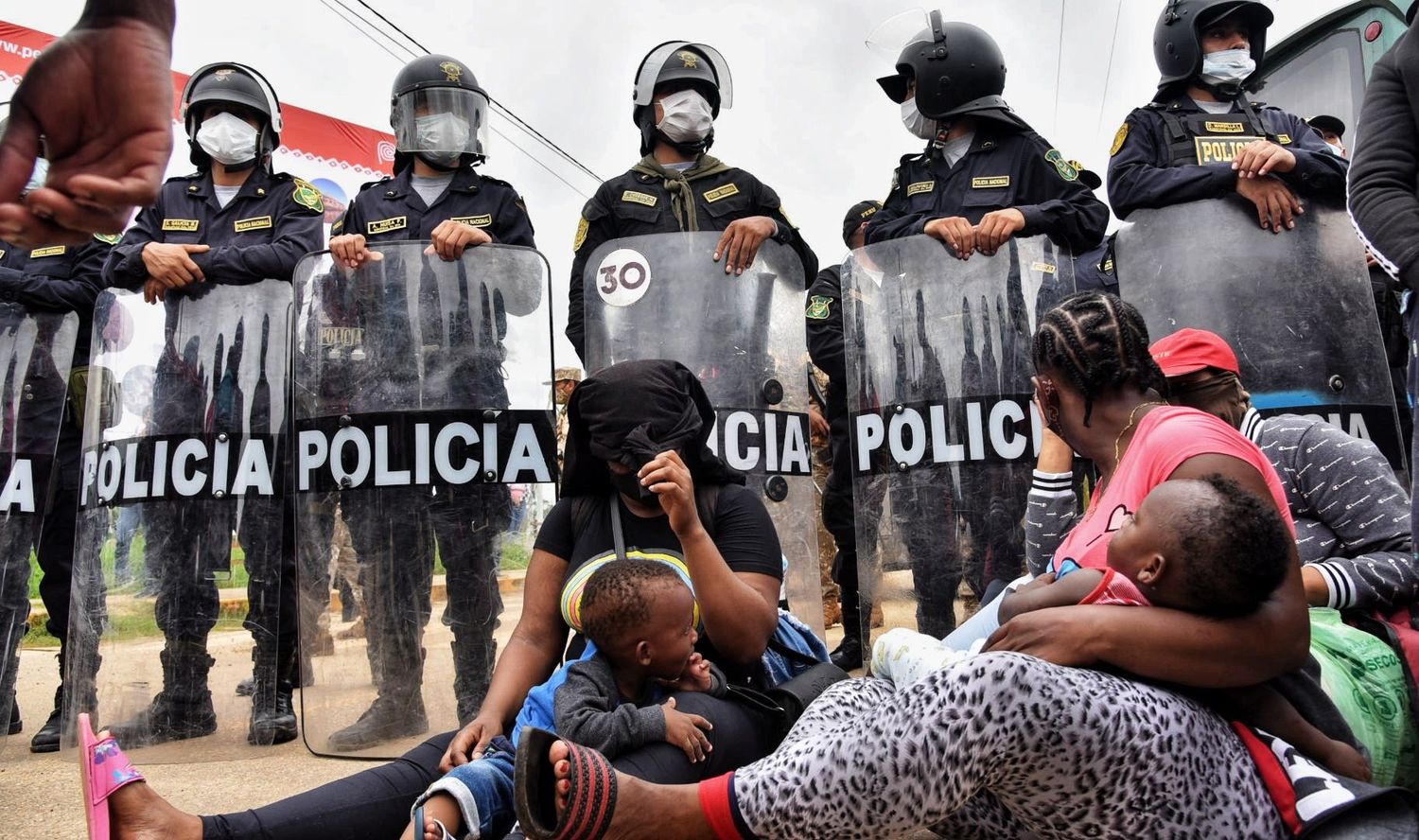RIO DE JANEIRO, BRAZIL – Over 400 people displaced by unemployment, fear of the covid-19 pandemic in Brazilian territory and dengue fever have been stranded for almost a week on the Amazonian border between Peru and Brazil.
The migrants – mostly Haitian, although there are also citizens from Burkina Faso, Senegal, Bangladesh, India and Pakistan – were trying to flee Brazil through the Peruvian border by the International Friendship Bridge, which links the two countries, but the Peruvian army and police met them with force.

The displaced are waiting in the municipality of Assis, in the state of Acre, the last city on the Brazilian side of the border. The apostolic vicar of Puerto Maldonado, a city that serves as an access route to the Amazon rainforest in southern Peru, has urged the authorities of both countries to find a solution to the crisis experienced by the displaced people.
On Thursday, Brazil reacted by deploying the military to take control of the border for 60 days.
On Friday, Guatemala’s Director General of Migration, Guillermo Díaz, told the press that he has information that Haitian migrants could reach his country or Panama by crossing Peru, then heading to the United States.
“We have received extra-official information, so the migration authorities in the region are preparing to be able to assist them,” he said.
Local media in both countries report that the displaced intend to travel to Tumbes, in northern Peru, to reach Ecuador and from there to other countries.
On Tuesday, a statement from Peru’s Interior and Defense Ministries said they have expelled 450 migrants and will continue to monitor the border. “They want to leave to make their way to Panama or to other destinations, some want to return to Haiti,” said Monsignor Martinez de Aguirre, vicar of Puerto Maldonado.
The injured were attended by Peruvian healthcare professionals, who also conducted covid-19 diagnostic tests. Three people who tested positive were expelled to the Brazilian side, and Luis Hidalgo, governor of the Department [State] of Madre de Dios in southeastern Peru, requested that 400 tests be sent.
“It’s a complex problem, the foreign citizens who wanted to enter, the vast majority of them Haitians, were driven out all the way to the border with Brazil. I met with the governor of Acre: he will travel to Brasília and will request resources for them,” Governor Hidalgo told a radio station in the Amazon region.
“This will get worse, citizens will be coming from São Paulo, Mato Grosso and Rondônia,” he added.
The religious authority in Puerto Maldonado agrees with the governor’s position. “This social crisis and this crowding of people happens because the borders are closed [due to the pandemic]. We know that there are 380 people, but they say that more people are coming from the interior,” Martínez de Aguirre said in an interview with the Vatican News portal.
Three-party dialogue
Monsignor Martinez de Aguirre urged the Peruvian Foreign Ministry to liaise with the authorities in Ecuador and Brazil or a dialogue table be set up. “It is possible to study solutions with molecular tests (PCR) to prevent contagion, which is the main concern: that they bring the Brazilian covid-19 variant into the country that is plaguing the region,” he said.
The Monsignor alerted to the presence of coyotes, and the Brazilian press last week reported the arrest of one of them at the border crossing bridge.
“We know of the existence of mafias, who intercept them on the roads. To cross the Acre River without the control of the authorities is relatively easy: what we fear is that this population makes its way without the proper support and control by authorities and that this could create bigger problems,” says the apostolic vicar.
“They want to leave Peru: they don’t even want Peruvian food aid or blankets. They just want a means of transport or to be allowed to pay for transport to reach their destinations,” clarified the priest.
According to Peru’s National Death Service, over 100,425 people have died from covid-19 and according to the Health Ministry, more than 1.2 million people had been infected by Tuesday.
This is the second time that a group of foreign migrants have been faced by Peruvian law enforcement at a border crossing. In late January, Army soldiers opened fire on displaced Venezuelans who entered from Ecuador through Tumbes.
Source: El Pais

